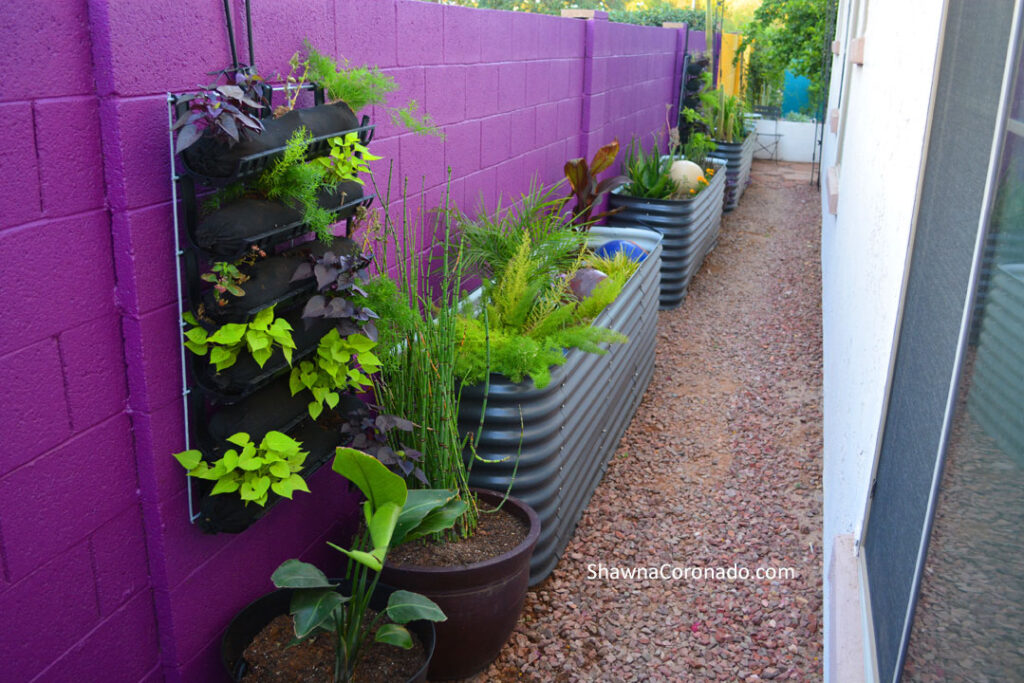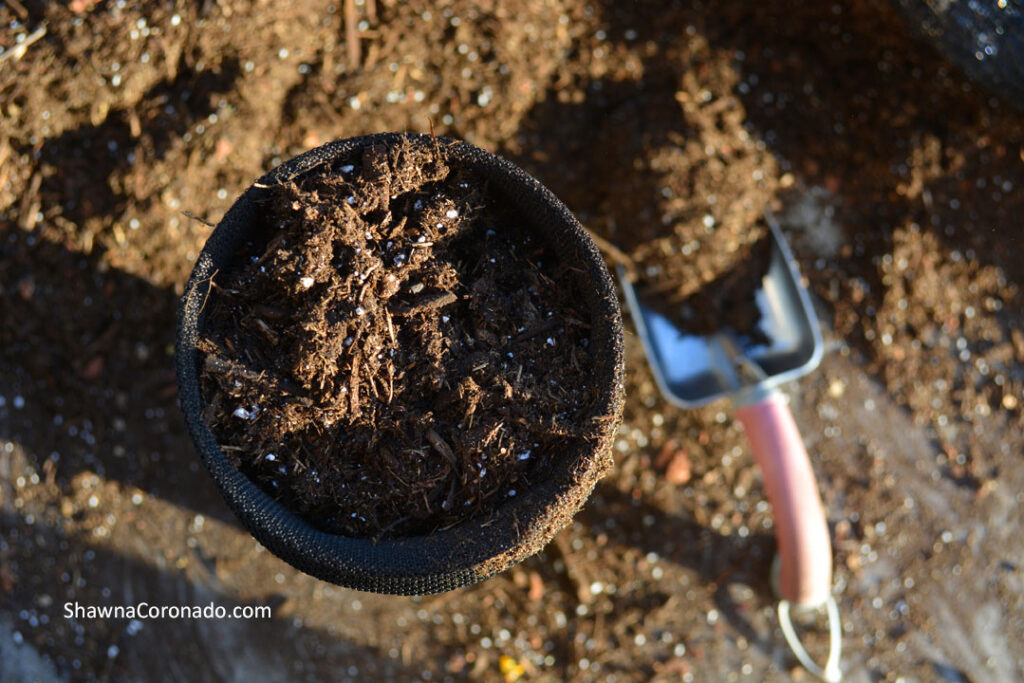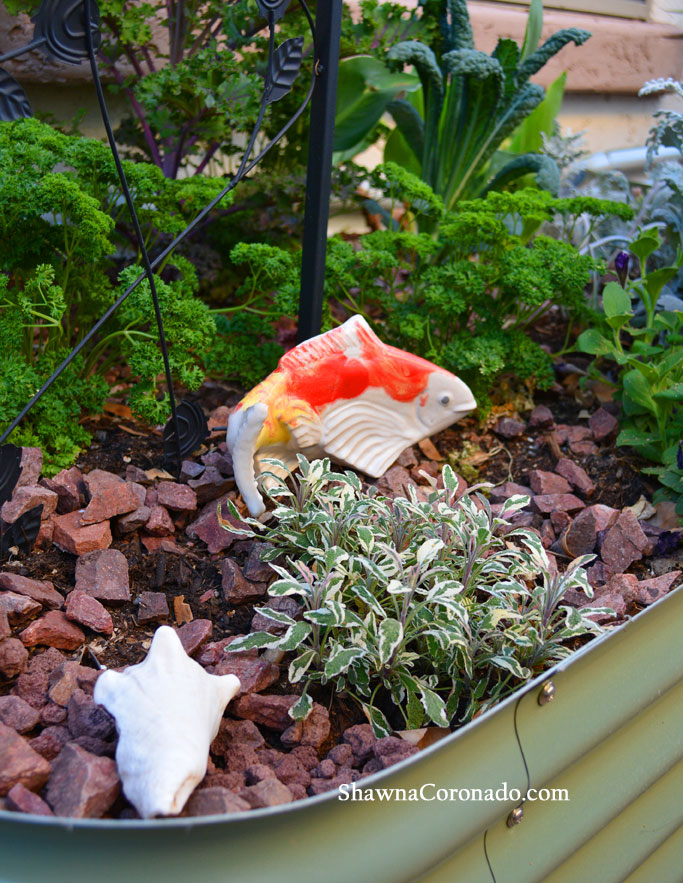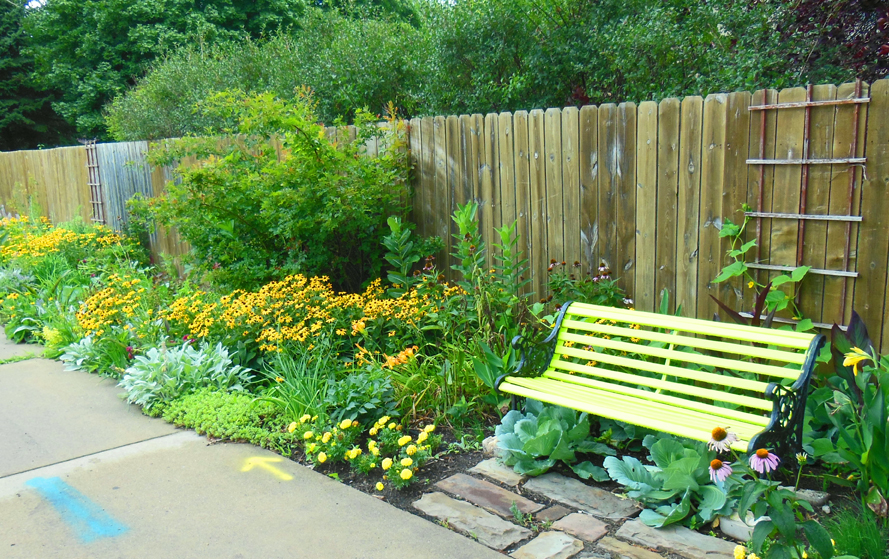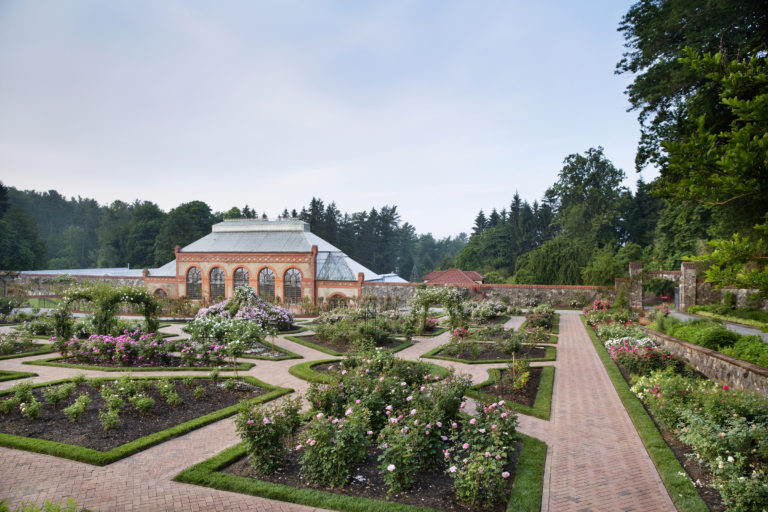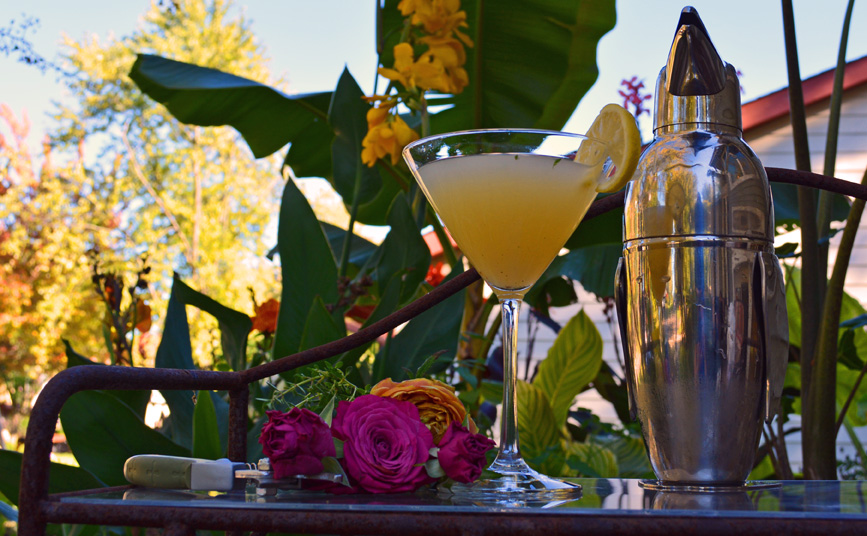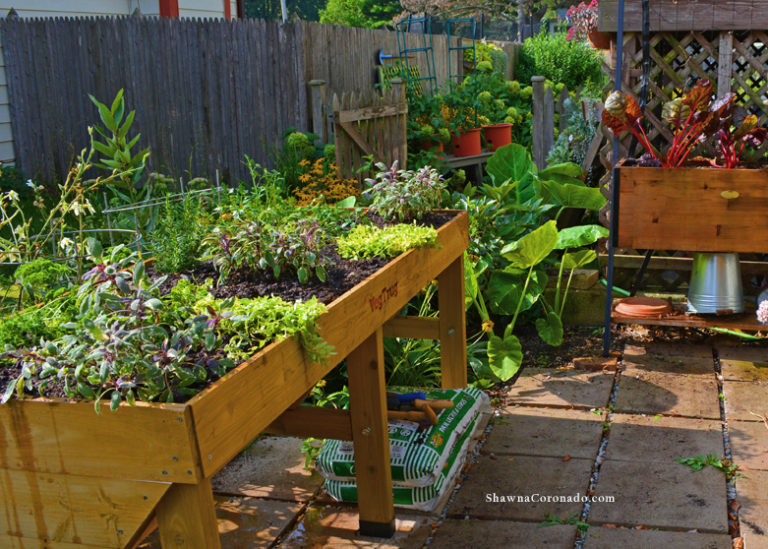Do Metal Raised Beds Get Too Hot?
Do metal raised beds get too hot in the garden? I get asked this question all the time. My gardens are filled with metal elevated garden beds and I love them. Living in Mesa, Arizona means I get the hottest of hot days mid-summer. This is the perfect testing ground for metal raised beds gardening; I have been testing this for several years. In my experience metal raised beds do not get too hot even when exposed to full sun. Overall, the temperature near the edge of the bed wall can get slightly warmer on a hot day. No warmer, however, than planting your plants up against a hot brick wall or similar.
Read on below for tips on growing plants in metal raised beds during hot summers. Learn where you can get all the cool metal bed and art I have in my special artistic side yard garden.
Good Products I Used for Building My Creative METAL BED Art Gallery Wellness Garden
- ✨THESE METAL RAISED BEDS✨ Birdies Raised Beds – Coated galvanized steel with a powder-coated food-safe, non-toxic paint for a beautiful, long-lasting result. Discount 5% off any garden bed product with the “SHAWNA5” Discount Code!
- Garden Grid™Watering System – Easy pre-assembled system, just drop in and connect to irrigation lines. Get $10 off any Garden Grid™ Watering Systems order of $100+ with the “SHAWNA10” Code!
- Gro-Well Raised Bed Soil and Nature’s Way Cactus & Patio Mix Soil – Ask for this soil at your local garden center.
- Midtown Swilt Umbrellas – The Swilt 8-foot Terylast terracotta automatic tilt umbrellas with strong fiberglass ribs to resist wind and add shade.
- Fish in the Garden Sculptures – Ceramic garden fish with special metal fish stands that help the fish float above your garden. An easy 5% off any garden bed product with the “SHAWNA5” Discount Code!
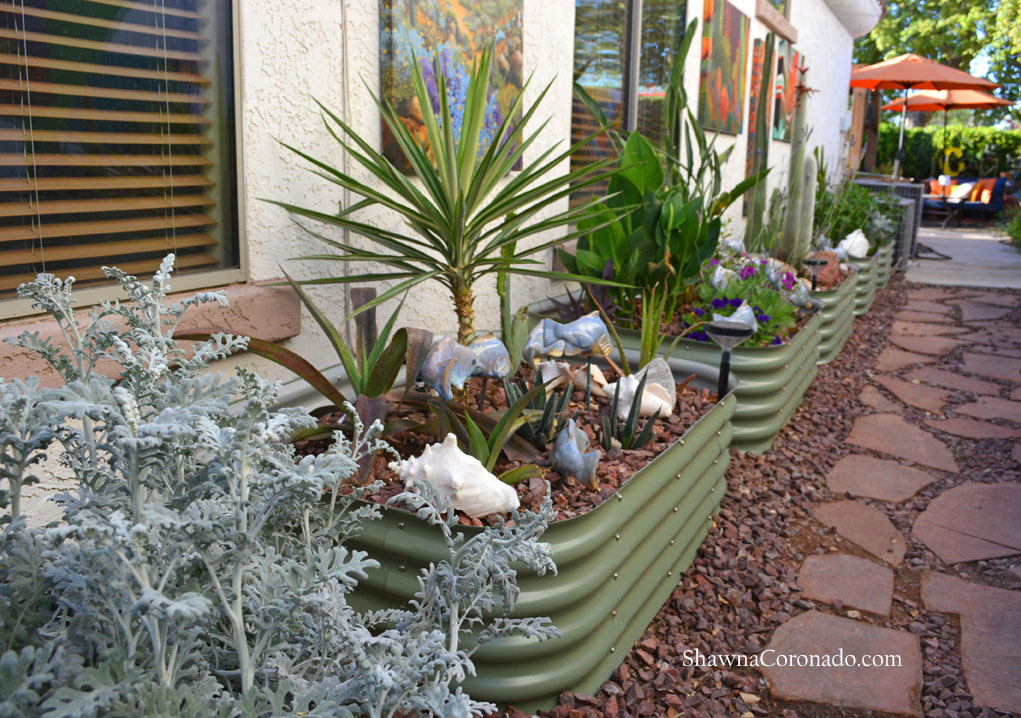
How to Grow Healthy Plants in Metal Garden Beds in the Hot Season
It is very easy to grow all kinds of plants in metal raised beds. From vegetables to cactus, gardening with elevated beds offers lots of benefits. The question is – Do metal raised beds get too hot?
Do Metal Raised Beds Get Too Hot?
The answer is a resounding NO! Depending on the beds you are using, elevated metal beds do not get too hot. Birdies Raised Beds are the garden beds that I use and I have not had problems with plants burning up and I LIVE IN DESERT ARIZONA. I have found that the beds generate no more heat than if you plan up against a hot brick wall or similar. For several years I’ve been testing this in my Secret Purple Side Yard Garden.
How Much Heat do You Have?
What would I plant near a hot concrete wall? Tough annuals, perennials, and shrubs that I know will do well with heat and reflected heat. Across the country that might include annuals such as summer herbs and vegetables, sweet potato vine, lantana, zinnia, marigold, cosmos, and sunflowers.
Perennials might include coreopsis, daylily, blanket flower, blazing star, lavender, or ice plant. Similarly, choose heat loving shrubs to use in elevated beds that are metal. Generally speaking, focus on plants that love hot conditions for the best success.
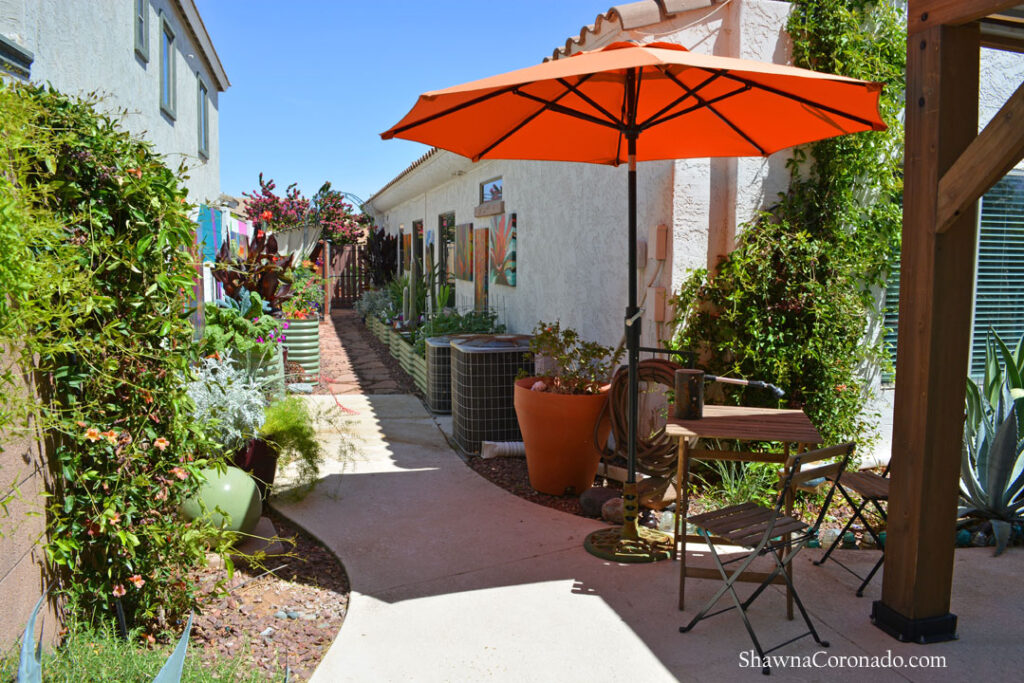
Use Shade Covers to Protect Metal Raised Beds
Another great idea is to use shade cover. I prefer two different types of shade cover for my gardens. Both are temporary, so you can set up the shade and pull it down as needed.
- Patio Umbrellas – I’ve used dozens of patio umbrellas over the years to temporarily shade plants and patio areas where plants reside. What I’ve discovered is that cheap umbrellas get destroyed quickly, particularly with strong winds. My favorite umbrellas are wind resistant and UV protected and worth every penny. I’m using Midtown Umbrellas fiberglass ‘The Swilt’ because the umbrella is resistant to strong winds. It also has a unique swivel and tilt feature that allows me to protect plants in varying positions.
- Shade Cloth – 30% shade cloth is a fabulous tool for your garden. Cover your plants just before the extremely hot season with a 30% shade cloth. Your plants will still get sun, but it won’t be as harsh. You can fold the product up at the end of the hot season and tuck it in storage.
Best Soil for Elevated Garden Beds
It is very important to choose the right soil for the right plants when planting in an elevated garden bed. Cactus, for example, prefer well-draining soil. I usually mix about half potting soil and half pumice or another inert mixing agent such as horticultural grit or vermiculite.
Annual and perennial plants typically like moisture retentive soil. This is very important in a metal raised bed. Mix one part potting soil, with two parts compost. This could be homemade compost or composted manure. The result will be a rich soil that is moisture-retentive.
My soil of choice this season is Gro Well Raised Bed Soil and Nature’s Way Cactus Soil. Both excellent products for potting in garden beds.
Irrigation for Elevated Garden Beds
The true secret to metal raised beds is proper irrigation. When I lived up north I hand watered infrequently. Living in Arizona heat means you need to water containers more regularly. I have invested in a great irrigation system, the Garden Grid™Watering System.
I assembled my Birdies Raised Beds, set the beds in position, then made sure that the irrigation lines were in place before I added the soil or planted the plants. This approach makes it much easier to add irrigation lines without disturbing soil or plantings once they are in the ground. Garden Grid watering is so easy – you can control how much water comes out and how often you water by placing the grid on a timer.
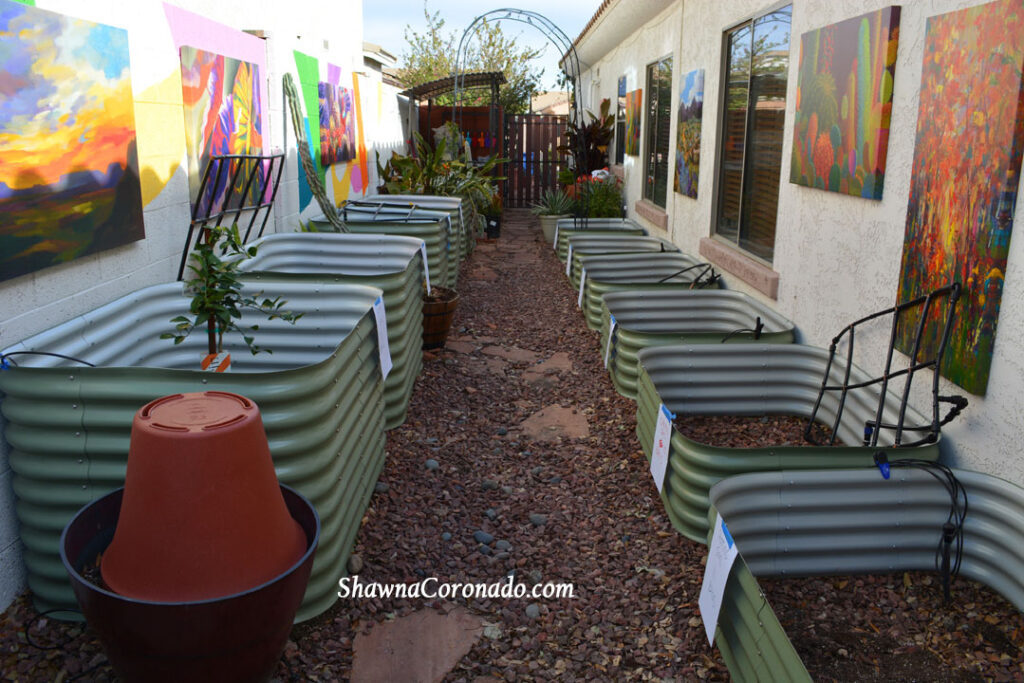
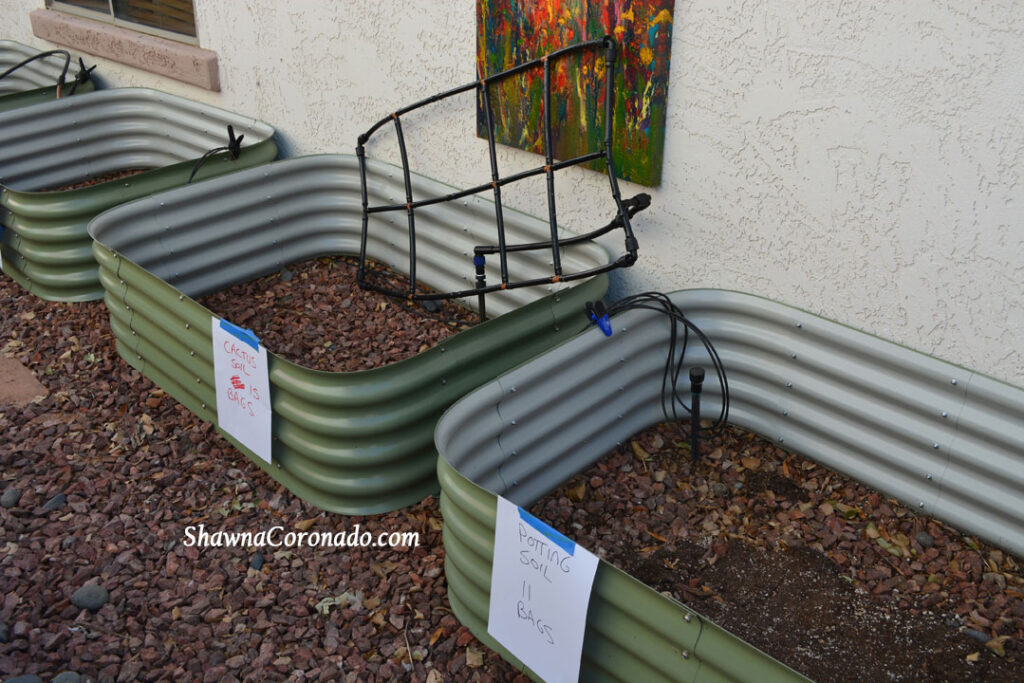
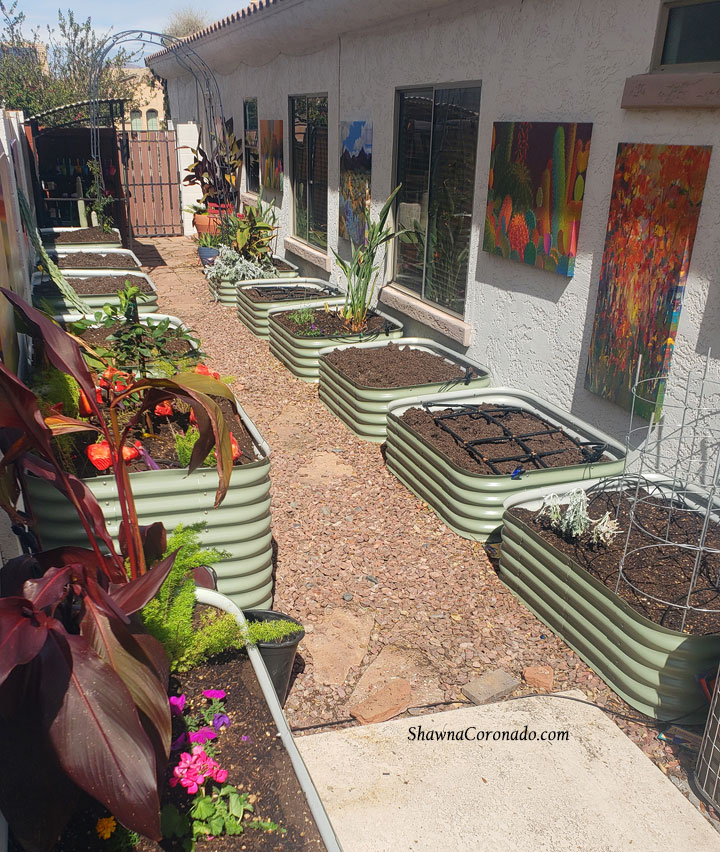
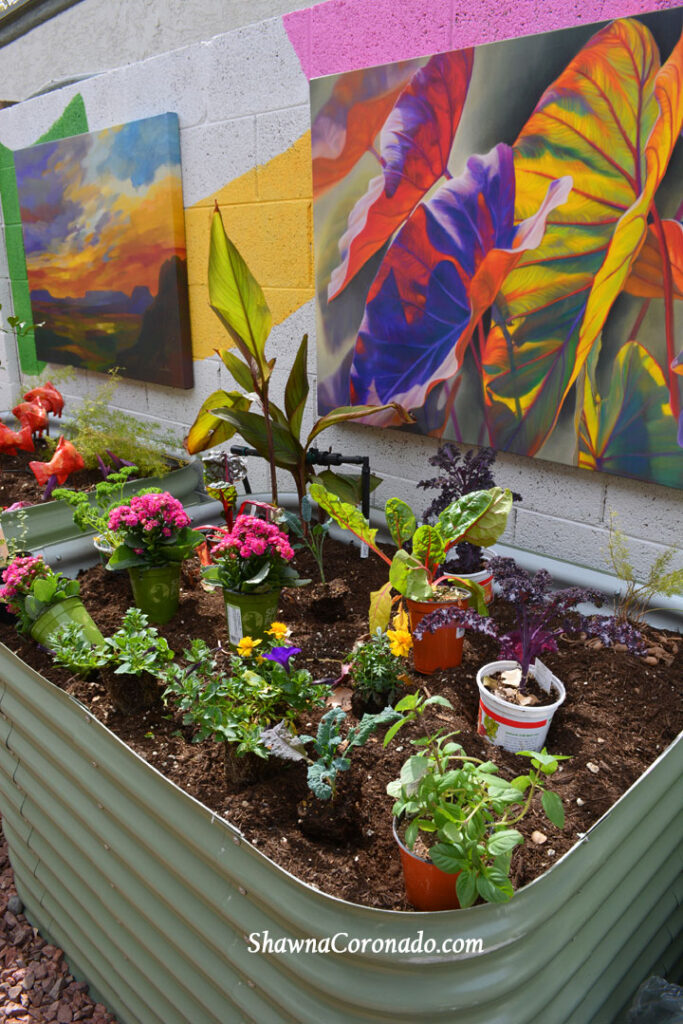
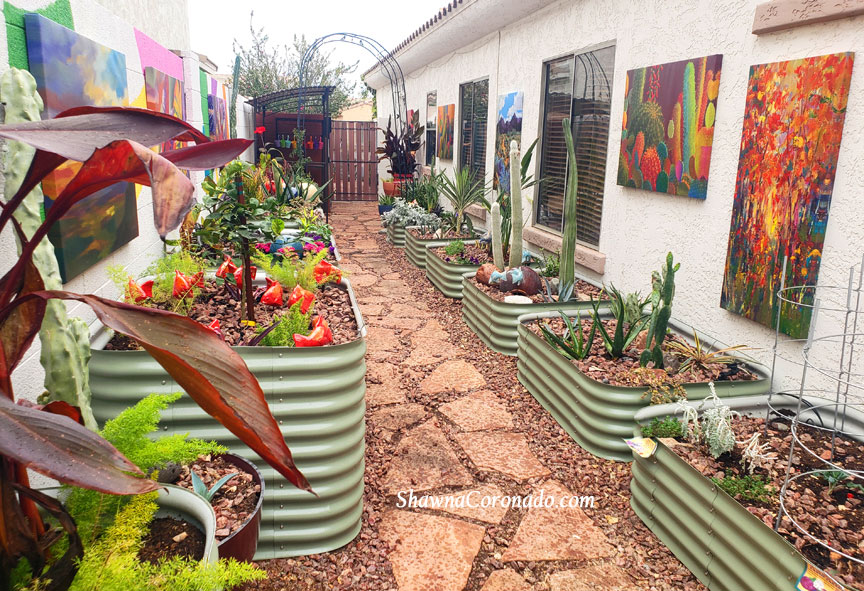
Why Metal Raised Beds Are Good For Your Garden
If you’re looking for a way to improve your gardening game, consider investing in an elevated metal garden bed like the beds I use. These beds offer a number of advantages over traditional garden beds, including:
- Durability: Metal garden beds are built to last. They won’t rot or warp like wood, and they’re resistant to pests and diseases.
- Ease of use: These garden beds are easy to set up and maintain. They’re also easy to move around, so you can rearrange your garden as needed.
- Better drainage: My elevated garden beds have excellent drainage, which helps to prevent root rot and other problems.
- Enhanced soil quality: The raised height of metal garden beds allows for better drainage and aeration, which helps to improve soil quality.
- Elegant design: Birdies raised metal garden beds come in a variety of colors, so you can find one that complements your home’s exterior.
If you’re ready to take your gardening to the next level, consider investing in an elevated metal garden bed. With its many advantages, it’s the perfect way to grow beautiful, healthy plants.
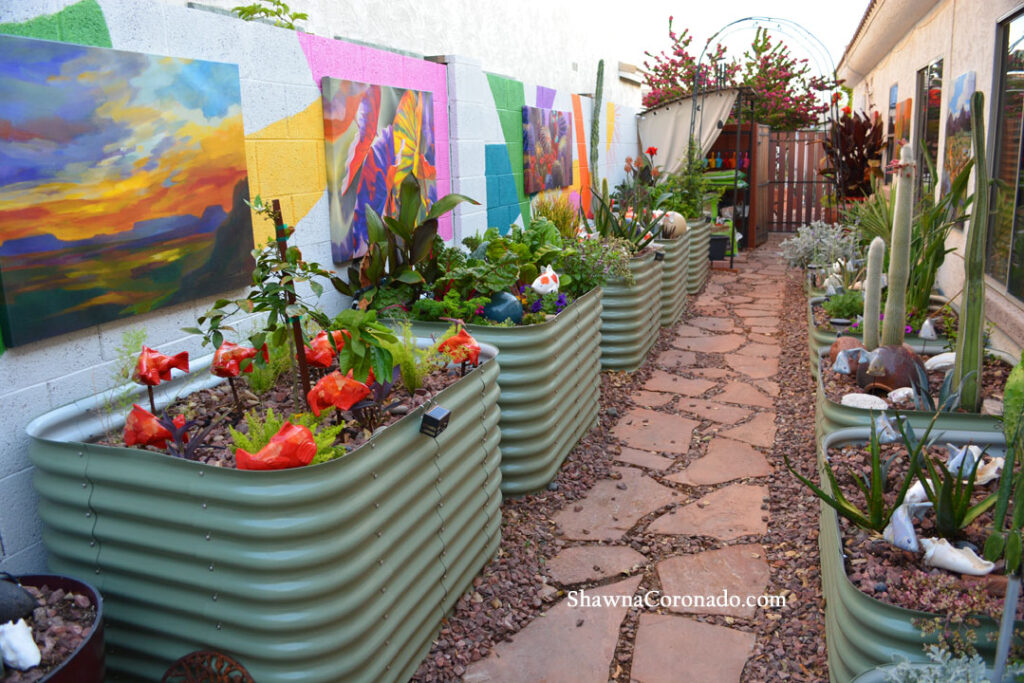
Additional Benefits of Using Metal Raised Beds in Your Garden
- Reduced back pain: Gardening can be hard on your back, especially if you’re bending over to plant and tend to your plants. With an elevated metal garden bed, you can garden at a comfortable height, which can help to reduce back pain.
- Improved accessibility: If you have mobility issues, an elevated metal garden bed can make it easier for you to garden. You won’t have to bend over or kneel down as much, which can make gardening more enjoyable and less physically demanding.
- Increased safety: Metal raised beds are more resistant to pests and diseases than traditional garden beds. This can help to protect your plants from harm and reduce the need for pesticides.
- Sustainability: Made from long lasting materials, these beds are a sustainable choice. They also require less maintenance than traditional garden beds, which can help to reduce your environmental impact.
If you’re looking for a durable, easy-to-use, and beautiful way to garden, then metal raised beds are the perfect solution for your garden.
